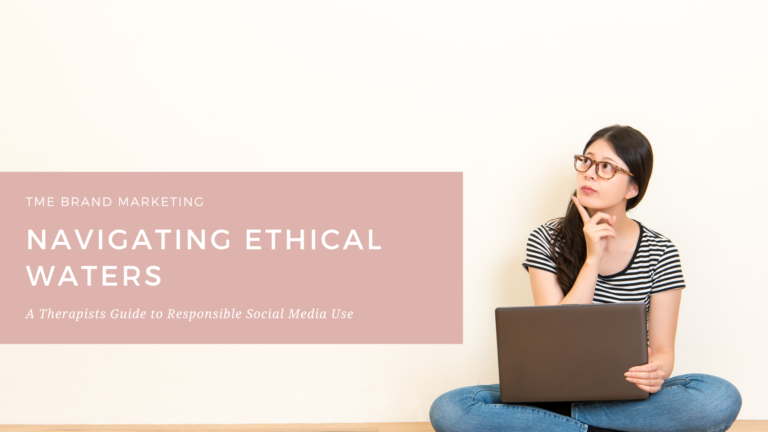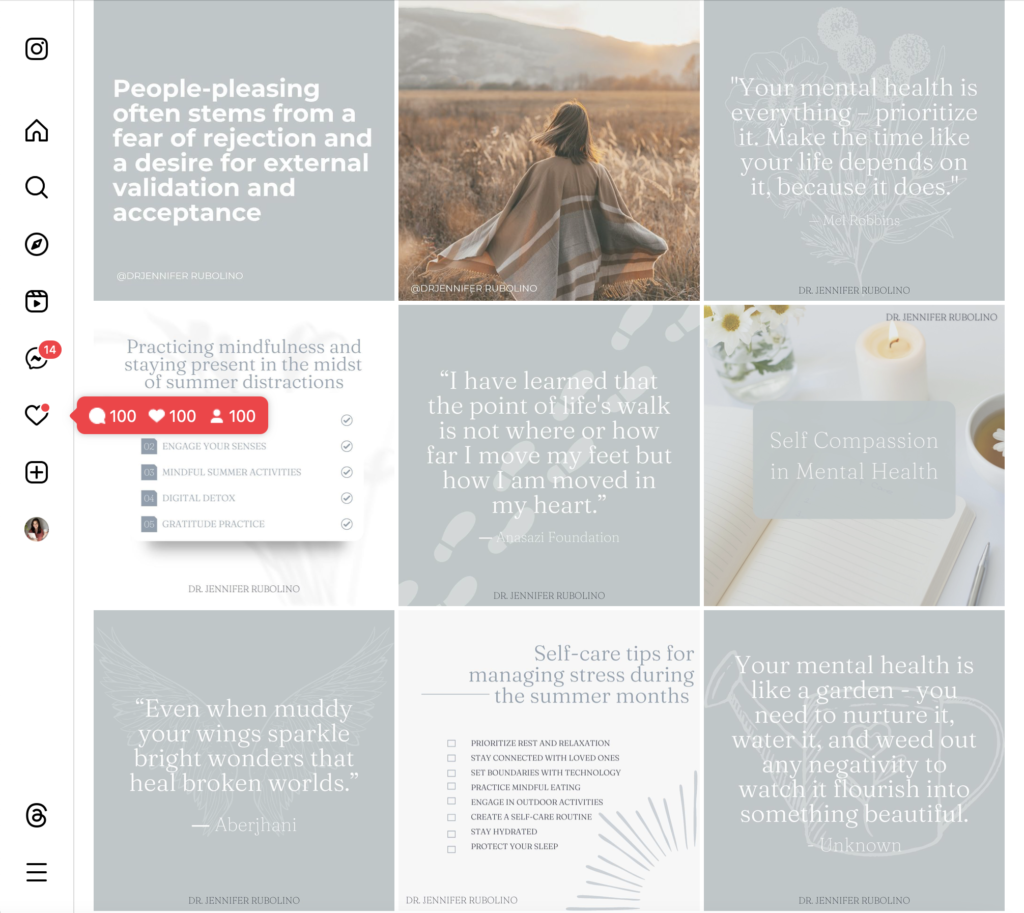
Building your social media presence as a therapist can feel a bit like tiptoeing through a minefield, where every post, comment, or share raises questions about professional boundaries and ethical considerations. The struggle is real. Creating ethical social media for therapists goes beyond marketing strategy; it demands a thoughtful, empathetic approach that respects the essence of therapeutic work.
As a digital marketing company specializing in the world of therapy, we understand the reservations and genuine dilemmas therapists face when it comes to showcasing their practice on social media. It’s a delicate dance, a tightrope walk between the desire to connect authentically with potential clients and the need to safeguard the privacy and sanctity of the therapeutic relationship.
Together, we can unravel this dilemma, set you up as the expert in your specialty or field, and find a path that not only promotes your practice effectively but also aligns seamlessly with the principles that guide you.
Dr. Jennifer Rubolino wanted to create a calm, inspirational, and informative online environment for her clients. So, we focused on creating a visually appealing pattern for her feed with inspirational quotes, blog post highlights, and therapy tips.
Kimberly Mathis (therapist turned life coach and host of the “Decisions Change Everything” podcast) is not afraid to show face. When we worked with Kim in 2022 during a busy season of her life and business, we provided social media support around her reels that promoted her own thought leadership, quotes, expertise, and passion to help women make those tough decisions.
As a therapist, your online presence can significantly impact your professional reputation and the trust clients place in you. Here are some tips for keeping it ethical with your social media posts.
1. Respect Confidentiality:
Client confidentiality is key. Refrain from sharing any identifying information, even in vague terms, about your clients on social media. Discussions, even in general terms, can breach trust. Stick to broad scenarios without compromising anyone’s privacy.
2. Separate Personal and Professional:
Create separate accounts for your personal and professional lives. While it’s okay to showcase aspects of your personality, ensure that your professional account remains focused on valuable insights, resources, and discussions related to mental health.
3. Offer Information, Not Therapy:
Social media is not a platform to provide therapy. Offer educational content, share coping strategies, and engage in discussions that contribute positively to mental health conversations. Make it clear that your posts are informative rather than therapeutic interventions.
4. Source Credible Information:
Ensure that the information you share is backed by credible sources. Misinformation can have harmful consequences. Always fact-check and provide accurate references for statistics, studies, and claims you share.
5. Avoid Dual Relationships:
Maintain professional boundaries on social media. Refrain from accepting friend requests from current clients, as this can blur the lines between therapeutic and personal relationships. If approached online, redirect clients to communicate through appropriate channels.
6. Monitor Comments and Engagement:
Monitor the comments on your posts for any potential concerns. Respond thoughtfully and professionally, but avoid providing specific advice or treatment recommendations. If necessary, guide individuals to seek professional help in private conversations.
7. Stay Neutral and Nonpartisan:
Political and controversial topics can polarize your audience. As a therapist, it’s wise to remain neutral and nonpartisan to prevent alienating potential clients. Your goal is to create a safe and inclusive space for all.
9. Be Mindful of Marketing:
While promoting your services is acceptable, avoid making exaggerated claims or using fear-based marketing tactics. Maintain transparency about your qualifications and expertise without resorting to tactics that undermine trust.
10. Regularly Review and Update:
Social media platforms and ethical considerations are subject to change. Regularly review and update your social media guidelines to ensure that you’re aligned with current best practices and professional standards.
An Ethical Online Presence
As a therapist, your presence on social media can be a powerful tool for education, advocacy, and engagement. By adhering to ethical principles and maintaining professional boundaries, you can create a positive impact while safeguarding your clients’ welfare and trust. Remember, responsible social media use is not just about building your brand—it’s about upholding the integrity of your profession and promoting mental health awareness in a responsible and compassionate manner.



